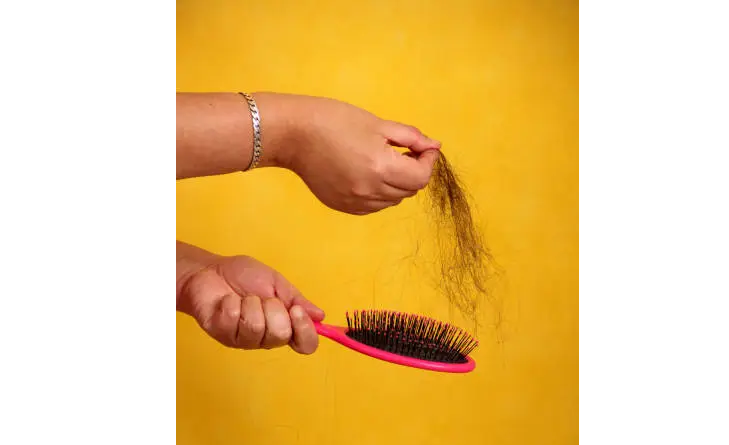Heavy hair fall is one of the unwanted side effects of monsoon season. Taking preventative action can be aided by knowing the causes of this. Ten explanations for the rise in hair loss this season are listed below.
1:-Humidity and Scalp Health:
The scalp is impacted by the monsoon’s increased humidity, which creates the perfect setting for fungus infections.
Hair loss may result from these illnesses weakening the roots of the hair.
2:-Sweat and Greasiness:
Excessive sweating brought on by high humidity combines with natural scalp oils to produce greasy hair.
Hair follicles can become clogged by oily scalps, which inhibits the growth of new hair and leads to the loss of existing hair.
3:-Rainwater Contaminants:-
Rainwater can be acidic or include contaminants that are bad for hair, especially in urban areas.
These pollutants can damage and remove natural oils from hair when it gets wet from rain, which can cause breakage and hair loss.
4:-Wet Hair Weakness:
Wet hair has less strength. Hair frequently stays wet or damp for extended periods of time during the rain.
When combing or brushing, wet hair is more prone to breakage and may cause additional hair loss.
5:-Nutrient Deficiency:
Nutrient deficits may result from dietary changes made during the rainy season.
Iron, zinc, and vitamin D deficiency are examples of vital vitamins and minerals that can damage hair follicles and cause an increase in hair loss.
6:–Scalp Hygiene Issues:
Sweat and persistent moisture make it difficult to maintain scalp hygiene.
Infections and dandruff, two conditions that contribute to hair loss, can result from poor scalp cleanliness.
7:-Change in Water Quality:
The water’s quality frequently fluctuates throughout the monsoon, perhaps become harder or having more chlorine in it.
Chlorine can dry up the scalp and hair, causing hair loss, while hard water can leave hair brittle and more likely to break.
8:-Stress and Lifestyle Changes:
Daily habits might be disturbed by the monsoon season, which can cause stress.
Stress is well recognized to have an impact on hair health, frequently resulting in disorders like telogen effluvium, a condition in which hair prematurely starts the shedding phase.
9:-Inadequate Hair Care Routine:
During the monsoon, the typical hair care regimen might not be enough. For example, using the wrong hair products or improperly drying your hair.
While leaving hair unbrushed can keep the scalp wet and encourage infections, using thick or oil-based products can weigh down hair and promote breakage.
10:–Seasonal Hair Cycle:
Natural cycles exist for hair development, and for many people, a phase of hair shedding coincides with the monsoon.
Notable hair loss may arise from this natural cycle in addition to other environmental variables.
Tips to Manage Hair Fall During Monsoon
Keep Hair Dry:
Aim to maintain dry hair. If need, use a cool setting on a hairdryer.
In order to get rid of any impurities and ensure that your hair dries properly, wash it with a gentle shampoo after it rains.
Maintain Scalp Hygiene:
Regularly wash your hair with a mild shampoo to prevent infections and maintain a clean scalp.
To prevent dryness and keep hair hydrated, use a conditioner.
Use Appropriate Hair Products:
Select hair care products based on the season and the type of hair you have. Avert weighing down your hair with thick, oil-based products.
If you frequently get infections on your scalp, look for antifungal shampoos.

